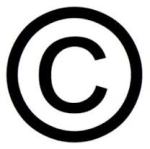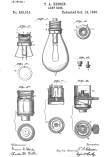“Individual farmers, laborers, owners, traders and managers – they are the heart and soul of development. Trust them, because whenever they are allowed to create and build, wherever they are given a personal stake in deciding economic policies and benefitting from their success, then societies become more dynamic, prosperous, progressive, and free.”
Ronald Reagan, Remarks at the International Meeting on Cooperation and Development, Cancun, Mexico, October 22, 1981
“To promote the progress of science and useful arts, by securing for limited times to authors and inventors the exclusive right to their respective writings and discoveries.” Article 1, Section 8, Clause 8, US Constitution
This clause is commonly called the Copyright Clause. The language is somewhat archaic today. The term “progress of science and the useful arts” would be called intellectual property today.
Intellectual Property:
Is defined in Wikipedia as the legal concept that refers to creation of the mind for which exclusive rights are recognized. The owner is granted certain exclusive rights to a variety of intangible assets such as musical, literary, and artistic works; discoveries and inventions, and words, phrases, symbols, and designs.
Types of intellectual property rights would be copyrights, patents, and trademarks. Other intellectual rights could be industrial design rights, trade dress, and some trade secrets. Clause 8 directly addresses copyrights and patents. Trademarks are addressed under the Commerce Clause.
A copyright is defined as the exclusive legal rights to reproduce, publish, sell, or distribute the matter and form of something (as a literary, musical, or artistic work).
A patent is defined as a grant made by government that confers upon the creator of an invention the sole right to make, use, and sell that invention for a set period of time.
Trademark is defined as a symbol, word, or words legally registered or established by use as representing a company or product.
We the people give Congress the authority to pass laws which give inventors, authors, and artists, for a limited number of years, the exclusive right to make and sell the things they create.
The benefit to we the people is that we have the opportunity to use and enjoy the things created by American inventors and artists. You also have the privilege to enjoy the money and fame that may come from something that you invent or create.
References:
Online dictionaries
www. Wikipedia.org
Findlay, Bruce Allyn and Findlay, Esther Blair. Your Rugged Constitution. Stanford: Stanford University Press, 1950
Hannaford, Peter. The Quotable Ronald Reagan. Washington, DC: Regnery Press, 1998
US Constitution


